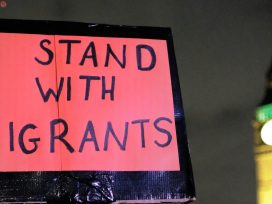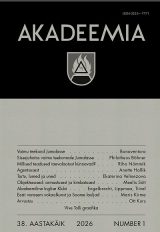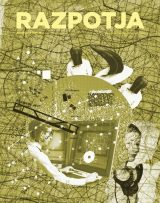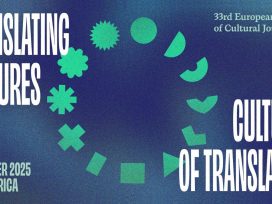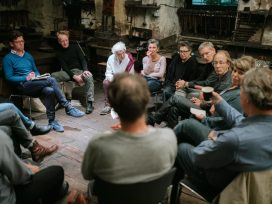Whether an Ivy League academic or a Patriot Front white nationalist, Curtis Yarvin will find your position too democratic. The once obscure blogger’s brand of postliberalism calls for a political system reboot popular with MAGA and Big Tech leaders. But does his eccentric mix of elitist, pseudo-religious and computational thought reflect chaos more than his desired order?
Articles
Arguments that ‘hate speech’ is ‘free speech’ abound. The far-right push to normalize offensive language in the name of protection is hypocritical and needs calling out. But is it also time for liberal free speech theory’s ‘marketplace of ideas’ to be reassessed?

Taking advantage of winter’s downtime to deal with coastal mass tourism seems astute, especially in Croatia where no one ever truly has a break from its impact.

Despite a semblance of calm, Maduro’s removal has unsettled the Venezuelan regime. Will Chavismo’s tried and tested combination of coercion and expectation management continue to delay the long-awaited rupture?
Recommended topics
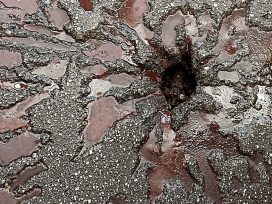
The atrocities committed by the Bosnian-Serb forces in 1995 prompted the West to finally intervene in Bosnia. Together with Croatian advances, NATO’s entry into the war set in motion a fundamentally new development.
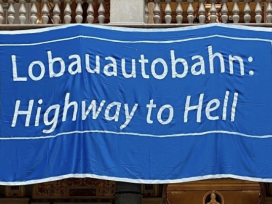
The accumulative injustice of wars, political conflicts and environmental destruction can lead to ‘empathy fatigue’. Could altruistic behaviour, known for activating happiness hormones, be the antidote? And can culture nurture the necessary positive political emotions, while itself under attack from culture wars?
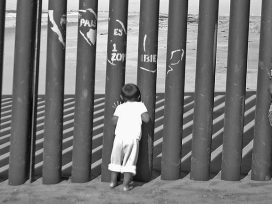
Against a backdrop of crime, corruption, inequality and sexual violence, Mexican novelists are returning to the tradition of the child narrator. Interviews with Fernanda Melchor, Luis Jorge Boone and Emiliano Monge.

“Come Together” is founded on the principles of partnership and peer-to-peer learning among individuals within community media organizations situated in six different countries. Instead of generating entirely new knowledge, the initiative aims to unearth and leverage the existing wisdom residing within these organizations to foster innovative approaches.
Eurozine review

Sexual rights and rivers
Gerador 2025
Portugal’s growing home insemination industry; 15 years of same-sex marriage; the ‘kingfishermen’ return to Portuguese rivers.

Ideas in movement
La Revue Nouvelle 8/2025
The Belgian journal marks 80 years of publishing by returning to debates central to its history, including: media and democracy, the prison system, mental health, and the politics of memory.
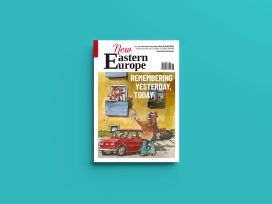
Between commodity and cult
New Eastern Europe 6/2025
Eastern European memory politics today: why numbers wars are bad diplomacy; the commodification of communism; Russia’s civic memory cult; Lukashenka’s ahistorical limbo.
Focal points

Crises tend to correlate with intense literary activity, but not necessarily with perspicacity. Our picks of 2025 have clearsightedness in abundance – as do all the articles Eurozine has had the privilege to publish in the past year.

Post-revolutionary Ukrainian society displays a unique mix of hope, enthusiasm, social creativity, collective trauma of war, radicalism and disillusionment. With the Maidan becoming history, the focal point ‘Ukraine in European Dialogue’ explores the new challenges facing the young democracy, its place in Europe, and the lessons it might offer for the future of the European project.

Inspired by a lecture that Clifford Geertz delivered in 1995 at the Institute for Human Sciences in Vienna, this focal point engages with ‘deep diversity’, ‘a sense of dispersion, of particularity, of complexity and of uncenteredness’ rather than unified world order. It follows the launch of a research programme of the same name at the institute in January 2023.
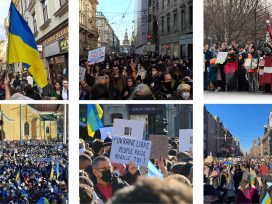
Russia’s invasion of Ukraine poses the greatest challenge to Europe’s self-understanding since World War II. Contributors to the new series ‘Lessons of war’ take on this challenge and reflect on the possibility of a ‘Rebirth of Europe’.
